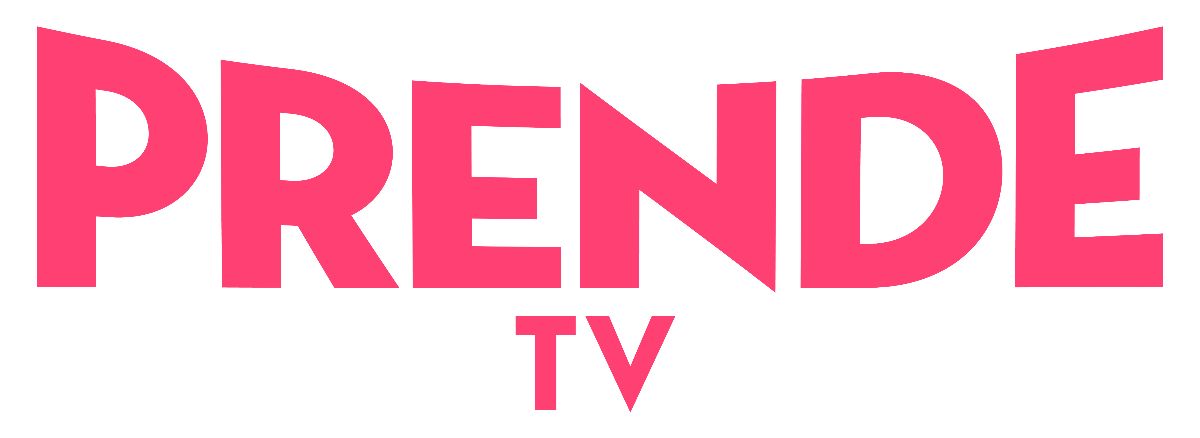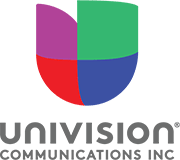 The threat of Covid, social distancing and ‘cancel culture’ has prompted reflection, deleting what’s unnecessary, and changing the status quo from consumers shifting values, lifestyle and priorities to companies permanently going to flexible work schedules, more equitable D&I practices, and re-focusing on key growth areas, led by Multicultural and Digital marketing. My prediction for 2021 is that companies finally do Multicultural marketing right, and allocate the commensurate fair share of budget, resources and attention to this business imperative. By Liz Castells-Heard, CEO & Chief Strategy Officer, INFUSION
The threat of Covid, social distancing and ‘cancel culture’ has prompted reflection, deleting what’s unnecessary, and changing the status quo from consumers shifting values, lifestyle and priorities to companies permanently going to flexible work schedules, more equitable D&I practices, and re-focusing on key growth areas, led by Multicultural and Digital marketing. My prediction for 2021 is that companies finally do Multicultural marketing right, and allocate the commensurate fair share of budget, resources and attention to this business imperative. By Liz Castells-Heard, CEO & Chief Strategy Officer, INFUSION
 WhatsApp, the Facebook-owned messenger that claims to have privacy coded into its DNA, is giving its 2 billion plus users an ultimatum: agree to share their personal data with the social network or delete their accounts.
WhatsApp, the Facebook-owned messenger that claims to have privacy coded into its DNA, is giving its 2 billion plus users an ultimatum: agree to share their personal data with the social network or delete their accounts.

 Roughly four-in-ten Americans have experienced online harassment, with half of this group citing politics as the reason they think they were targeted. Growing shares face more severe online abuse such as sexual harassment or stalking
Roughly four-in-ten Americans have experienced online harassment, with half of this group citing politics as the reason they think they were targeted. Growing shares face more severe online abuse such as sexual harassment or stalking The proliferation and rising popularity of a myriad of digital channels over the past decade has made the measurement of media effectiveness increasingly complex.
The proliferation and rising popularity of a myriad of digital channels over the past decade has made the measurement of media effectiveness increasingly complex. The acceleration of key disruptive forces in retail is causing the rapid transformation of the industry. KPMG’s new report, “Revive to Survive,” outlines three disruptive forces shaping retail’s future, and makes five bold predictions on the future of the industry.
The acceleration of key disruptive forces in retail is causing the rapid transformation of the industry. KPMG’s new report, “Revive to Survive,” outlines three disruptive forces shaping retail’s future, and makes five bold predictions on the future of the industry.  The threat of Covid, social distancing and ‘cancel culture’ has prompted reflection, deleting what’s unnecessary, and changing the status quo from consumers shifting values, lifestyle and priorities to companies permanently going to flexible work schedules, more equitable D&I practices, and re-focusing on key growth areas, led by Multicultural and Digital marketing. My prediction for 2021 is that companies finally do Multicultural marketing right, and allocate the commensurate fair share of budget, resources and attention to this business imperative. By Liz Castells-Heard, CEO & Chief Strategy Officer, INFUSION
The threat of Covid, social distancing and ‘cancel culture’ has prompted reflection, deleting what’s unnecessary, and changing the status quo from consumers shifting values, lifestyle and priorities to companies permanently going to flexible work schedules, more equitable D&I practices, and re-focusing on key growth areas, led by Multicultural and Digital marketing. My prediction for 2021 is that companies finally do Multicultural marketing right, and allocate the commensurate fair share of budget, resources and attention to this business imperative. By Liz Castells-Heard, CEO & Chief Strategy Officer, INFUSION NBCUniversal Telemundo Enterprises announced the appointment of two new executives as it expands its Revenue Strategy and Distribution business unit to develop and grow content monetization opportunities in the U.S. and around the world.
NBCUniversal Telemundo Enterprises announced the appointment of two new executives as it expands its Revenue Strategy and Distribution business unit to develop and grow content monetization opportunities in the U.S. and around the world. Univision Communications Inc. announced plans to launch PrendeTV, the only streaming service created exclusively for the U.S. Hispanic audience featuring free, premium 100% Spanish-language programming.
Univision Communications Inc. announced plans to launch PrendeTV, the only streaming service created exclusively for the U.S. Hispanic audience featuring free, premium 100% Spanish-language programming. 2020 didn’t shape up to be the year that experiential marketers expected. The fallout from the pandemic deeply wounded the booming industry, and for those who live and breathe events, the year presented the most significant roadblock they’ve ever faced. But event professionals worldwide have rolled up their sleeves, fervently working to evolve and adapt, and are ultimately paving the way to a brighter 2021.
2020 didn’t shape up to be the year that experiential marketers expected. The fallout from the pandemic deeply wounded the booming industry, and for those who live and breathe events, the year presented the most significant roadblock they’ve ever faced. But event professionals worldwide have rolled up their sleeves, fervently working to evolve and adapt, and are ultimately paving the way to a brighter 2021.  GroupM, WPP’s media investment group, released new research that reveals that 1 in 2 (54.3%) of consumers believe it’s important to be equipped with the latest technology. Additionally, almost 82% of respondents believe that either they or a family member should be the only ones with access to health and fitness tracker data.
GroupM, WPP’s media investment group, released new research that reveals that 1 in 2 (54.3%) of consumers believe it’s important to be equipped with the latest technology. Additionally, almost 82% of respondents believe that either they or a family member should be the only ones with access to health and fitness tracker data. The ANA introduced new tools and capabilities designed to help marketers navigate the growing complexities posed by the procurement, integration, and activation of advanced marketing technology to optimize their technology investments.
The ANA introduced new tools and capabilities designed to help marketers navigate the growing complexities posed by the procurement, integration, and activation of advanced marketing technology to optimize their technology investments. Most of us were happy to turn the page on 2020 and discover what comes next. What that will be is still uncertain, but we know it won’t be a return to our pre-pandemic normal. With that in mind, let’s explore how agencies will win business this year. By Mark Duval – The Duval Agency
Most of us were happy to turn the page on 2020 and discover what comes next. What that will be is still uncertain, but we know it won’t be a return to our pre-pandemic normal. With that in mind, let’s explore how agencies will win business this year. By Mark Duval – The Duval Agency Searchlight III UTD and ForgeLight‘s acquisition of a majority stake of Univision Holdings formally closed. As such, Searchlight, a private investment firm founded by CEO Wade Davis, and associated entity, ForgeLight — an operating and investment company focused on the media and consumer technology sectors — are now the holders of shares in Univision previously held by Madison Dearborn Partners, Providence Equity Partners, TPG, Thomas H. Lee Partners, and Saban Capital Group. As expected, Davis assumed Univision’s Chief Executive chair from Vince Sadusky. What wasn’t expected: a major house cleaning in Univision’s C-Suite. By Adam R Jacobson – Editor-in-Chief, Radio + Television Business Report
Searchlight III UTD and ForgeLight‘s acquisition of a majority stake of Univision Holdings formally closed. As such, Searchlight, a private investment firm founded by CEO Wade Davis, and associated entity, ForgeLight — an operating and investment company focused on the media and consumer technology sectors — are now the holders of shares in Univision previously held by Madison Dearborn Partners, Providence Equity Partners, TPG, Thomas H. Lee Partners, and Saban Capital Group. As expected, Davis assumed Univision’s Chief Executive chair from Vince Sadusky. What wasn’t expected: a major house cleaning in Univision’s C-Suite. By Adam R Jacobson – Editor-in-Chief, Radio + Television Business Report We have seen a continuous change in consumer behavior in these fast-changing times. Yet marketers still have to make the right decisions when it comes to marketing investments in unpredictable situations. In order to make the right decisions, there is a renewed recognition of the importance of accurately and sustainably measuring marketing activities. MMM is an ideal solution that can be used continuously to help your business in these challenging times.
We have seen a continuous change in consumer behavior in these fast-changing times. Yet marketers still have to make the right decisions when it comes to marketing investments in unpredictable situations. In order to make the right decisions, there is a renewed recognition of the importance of accurately and sustainably measuring marketing activities. MMM is an ideal solution that can be used continuously to help your business in these challenging times. PRAM is a joint-industry initiative to advance and protect critical functionalities like measurement and attribution for digital media and advertising, while safeguarding privacy and improving the consumer experience.
PRAM is a joint-industry initiative to advance and protect critical functionalities like measurement and attribution for digital media and advertising, while safeguarding privacy and improving the consumer experience.

























